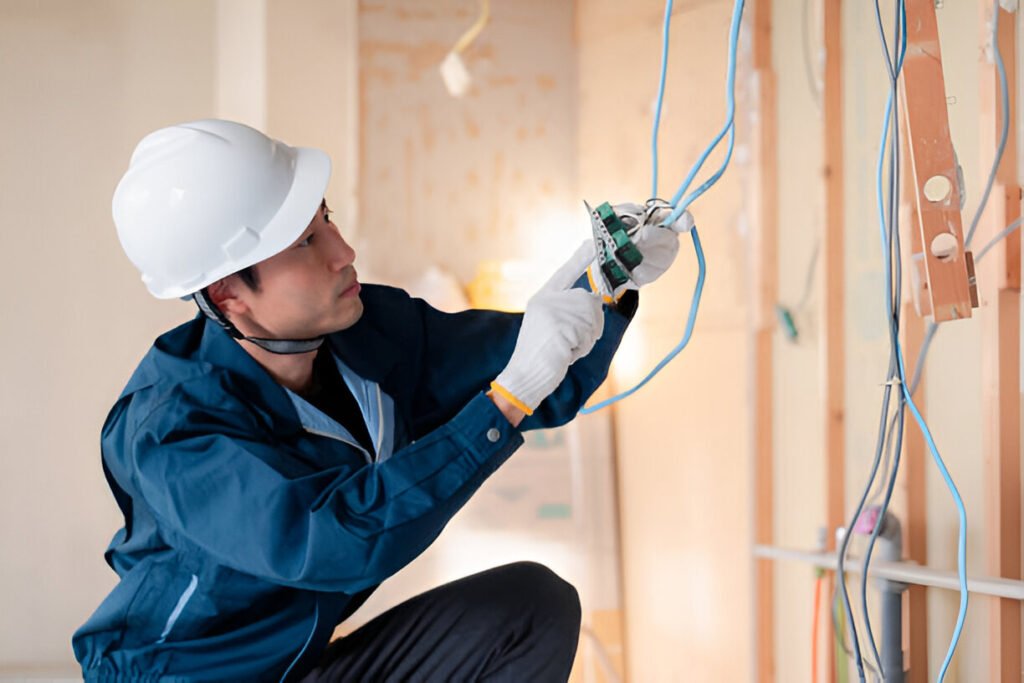Table of Contents
- Introduction to Network Cabling Contractors
- The Importance of Professional Network Cabling
- Types of Network Cabling
- Benefits of Hiring Network Cabling Contractors
- Key Considerations When Choosing a Contractor
- Steps in Network Cabling Installation
- Maintaining Your Network Infrastructure
- Conclusion
Introduction to Network Cabling Contractors
A dependable network infrastructure is essential for business operations in today’s interconnected world. Network cabling contractors guarantee the strength and dependability of your network. Collaborating with network cabling contractors is a forward-thinking and tactical decision for businesses seeking to improve their network abilities. From setting the foundation to solving intricate problems, these experts are essential. They provide skills, modern tools, and tested approaches, facilitating a smooth and efficient network installation that fulfills business requirements.
The Importance of Professional Network Cabling
Professional network cabling is the backbone of any efficient IT system. Poor cabling can lead to slow data transfer speeds, frequent network outages, and security vulnerabilities. Businesses often overlook the significant impact of quality cabling, thinking it’s a minor detail. Still, a well-structured cabling system can save money and hassles in the long run. Improved cabling can help in faster and more reliable data transfer, which is crucial for today’s businesses, where every second counts. Such efficiency contributes to smoother operations and better communication within and outside the organization.
Types of Network Cabling
- Fiber Optics: These are ideal for high-speed, long-distance data transfers with minimal electromagnetic interference, making them suitable for data centers and ISPs.
- Cat5e and Cat6: These are common in office environments. Cat5e is cost-effective for general use, while Cat6 offers higher bandwidth and faster speeds for demanding tasks like video conferencing and VoIP.
- Coaxial Cables: These are used for cable internet and high-frequency transmissions, offering durability and reliable connectivity for television and multimedia applications.
Benefits of Hiring Network Cabling Contractors
Hiring expert contractors guarantees your network infrastructure meets industry standards. These specialists have extensive experience, which minimizes the chances of installation mistakes and ensures a smooth operation of your network right from the start. Contractors’ specialized skills are precious as they can create personalized solutions to meet specific business demands, guaranteeing maximum efficiency and growth potential. Professional contractors also follow the most up-to-date standards and top practices, which ensures the network is prepared for the future.
Key Considerations When Choosing a Contractor
- Experience and Certifications:Look for contractors with relevant certifications, such as BICSI or Cisco. Having previous experience with projects like yours can be very beneficial. These certificates guarantee that the contractor knows the newest technologies and industry regulations.
- Comprehensive Services:Ensure the contractor offers services from installation to ongoing maintenance. A contractor that provides end-to-end services can offer better solutions and a more integrated approach to network management.
Steps in Network Cabling Installation
The installation process usually involves several steps:
- Assessment:Evaluating the site to determine the best cabling solutions involves a detailed analysis, including examining the physical layout and current infrastructure. This step is crucial for identifying specific needs and tailoring solutions accordingly.
- Planning:Designing a layout that maximizes efficiency and minimizes disruptions requires meticulous planning. This includes creating detailed blueprints highlighting the optimal placement of cables and network devices to ensure seamless operation.
- Installation:Professionals lay down cables and set up network devices according to the plan. They use specialized tools and techniques to install the wires efficiently, minimizing potential future issues.
- Testing:The final step is to ensure that all components are working correctly and efficiently. This involves rigorous testing protocols to check for signal loss, connectivity issues, and overall performance to ensure everything is in perfect working order.
Maintaining Your Network Infrastructure
Consistent upkeep is essential for maintaining your network’s optimal condition. Regularly planned inspections and software upgrades can help avoid problems and prolong the longevity of your network system. Can you establish a maintenance agreement with your cabling contractor for continual assistance? Routine maintenance involves inspecting cables for wear, upgrading software, and verifying the proper functionality of all parts. It is a preventative strategy to prevent expensive periods of inactivity and fixes, guaranteeing the network functions at its best.
Conclusion
Network cabling contractors are vital in constructing and upholding a solid network infrastructure. By opting for experts and investing in top-notch materials and craftsmanship, companies can guarantee the dependability and effectiveness of their network, laying the foundation for smooth operations and expansion. Collaborating with seasoned contractors can result in improved system design, minimized downtimes, and long-term savings. Ensuring professionals manage your network allows businesses to concentrate on their strengths, promoting innovation and expansion.

















